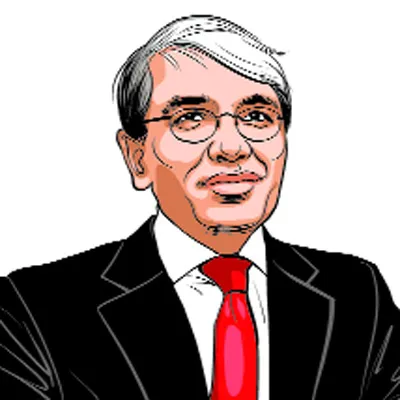Opinion Where the young are
Unorganised retail and organised labour dont understand the needs and the confidence of Indias young people
For years,social scientists believed that human beings were generally rational,but emotions like fear,hatred and affection could explain most departures from rationality. Until Daniel Kahneman got the Nobel Prize for tracing human errors to the design of the machinery of cognition rather than to the corruption of thought by emotion. As he points out in Thinking,Fast and Slow one of the most interesting books of this year human beings are blind to the obvious,but they are also blind to their own blindness. The debate on foreign direct investment (FDI) in retail recently joined labour law reform in reflecting this blindness.
There should have been six stakeholders at the table in the retail FDI debate incumbent unorganised retail,current workers in unorganised retail,future workers in retail,consumers,foreign capital and producers. But one stakeholder incumbent unorganised retail positioned its self-interest as national interest and sabotaged reform. The deferral decision ignores rather,attacks the interests of current workers in unorganised retail (no PF,no ESI,no minimum wages and mostly,child labour),future workers in retail (part of our demographic dividend),consumers (currently reeling from inefficiencies and food inflation),foreign capital (willing to risk their money to create jobs),and producers (farmers and small enterprises who dont get higher prices because of parasitic middlemen).
The fear of foreigners is surprising because of the high probability that the strong value proposition of unorganised retail which has held up well against Indian-owned organised retail and forced shareholders to continue writing cheques to customers will punish foreign organised retail in the same way.
The current FDI outcome would not surprise economist Mancur Olson; his work on interest groups showed how a small but vocal and organised minority can hijack the agenda in a democracy. His work brings us to Indias strongest interest group; organised labour. They are only 7 per cent of our labour force but have stalled any labour law reform by positioning job preservation as a form of job creation. Unorganised labour is a policy orphan and consequently,four labour market variables in 2011 are where they were in 1991; 12 per cent manufacturing employment,58 per cent agriculture employment,93 per cent informal employment and 50 per cent self-employment. Like the retail FDI outcome,the lack of labour law reform allows one small stakeholder organised labour to impose costs on four large stakeholders; current unorganised labour,current employers,future employers and Indias current youth.
In assessing the future impact of retail FDI or labour law reform,Kahneman would say that India has relied on a limited number of useful heuristic principles which reduce the complex tasks of assessing probabilities and predicting values to simpler judgmental operations. But he would also say these heuristics lead to a FDI and labour reform debate that has severe and systemic errors including confirmation bias (ignoring evidence that contradicts pre-conceived notions),anchoring (weighing one piece of information or one perspective too much in making a decision),loss aversion (valuing small potential losses more than large potential gains),affect heuristic (falling in love with the status quo and ignoring costs while exaggerating benefits),saliency (using a memorable but wrong analogy to influence opinion),and representativeness (insensitivity to prior probability of outcomes or sample size). We know that kirana shop owners are a much smaller population than the exploited kirana shop workers. We know that the self-interest of agricultural food supply chain intermediaries lies in lower transparency and efficiency for the farm to fork journey for food. We accept that creating new jobs is more important than preserving all the jobs we have. Yet,as a society,we have allowed massive lies and distortion in the retail FDI and labour law debate.
Kahnemans intellectual partner the late Amos Tversky liked to tell traditional social scientists You believe in artificial intelligence but I know about natural stupidity. But despite the irrationality of human decision-making and challenges of democracy,policy making is about making choices. Unorganised retail and organised labour seem united by a fear of an unknown future. But their biggest fear is youth; a pipeline of young people and new organisations who view the future differently than they do. The 10 lakh kids who will join the labour force every month for the next 20 years are not midnights children,but reform babies. These kids have high expectations and dont idealise or fear the West they understand more than we did that that you dont have to be Western to be modern. They dont view employment as a lifetime relationship but a contract that is intense,intimate but short. In parallel,the pipeline of new company creation in India has substantially morphed since 1991. India is still a hostile habitat for entrepreneurship but most new companies outside of natural resources propose to succeed by the strength of their back,the courage in their heart and the sweat of their brow rather than regulatory arbitrage and government connections. These new organisations think about capital,employees,foreigners and the environment very differently from companies created before 1991. This thought world is an unfair advantage and terrifies incumbents.
Indias youth need lots of jobs including in retail. Indias young and future companies need labour reform. Retail FDI and labour law reform are currently two sides of the same coin; a small minority imposing costs on a majority that needs and deserves a different future. Fear is human; many policy makers suggest that getting change in a democracy like India needs the winners to bribe the losers. But the price and privilege of leadership is hearing all sides of an argument before deciding in favour of what Jeremy Bentham called the greatest good for the greatest number. In India,this greatest good lies in choosing young people and young companies over unorganised retail and organised labour.
The writer is chairman,Teamlease Services


